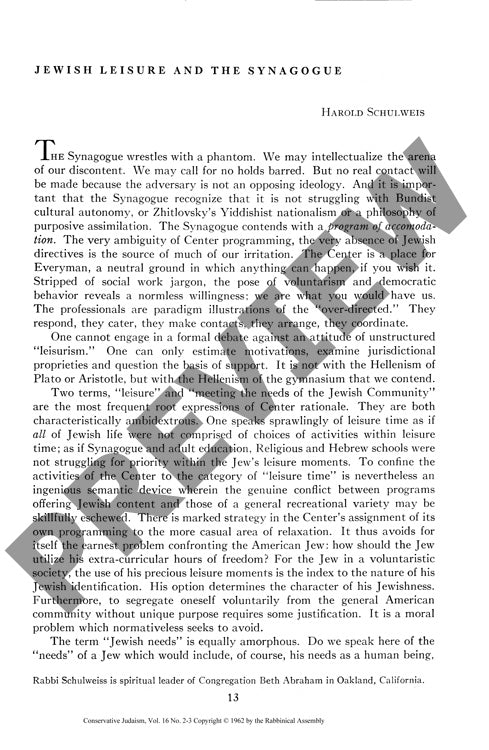Jewish Leisure and the Synagogue
Couldn't load pickup availability
A stark ideological divide emerged between American synagogues and Jewish community centers in the mid-20th century, revealing a deeper tension between authentic Jewish programming and secular assimilation. Through critical analysis, Harold Schulweis demonstrates that synagogues faced competition not from alternative Jewish philosophies, but from community centers' "leisurism" approach - one that prioritized secular recreation while marginalizing substantive Jewish cultural and religious content. This shift represented what Schulweis terms "institutionalized collective assimilation," whereby Jewish organizations maintained ethnic membership while adopting non-sectarian programming. Centers misapplied Church-State separation principles to Jewish communal organization, resulting in funding structures that favored secular activities over religious education and cultural initiatives. Such practices fundamentally misunderstood Judaism's civilizational character, which inherently weaves together people, culture, ritual, and faith. The analysis argues for synagogues to reclaim their position as unifying communal institutions by broadening their programming while preserving religious authenticity. It further advocates restructuring community funding priorities to support agencies that promote Jewish cultural, moral, and religious development rather than recreational programming devoid of distinctive Jewish purpose.

More Information
-
Physical Description
-
Publication Information
Published 1962
ISBN
-
Publication Credits
Harold Schulweis

